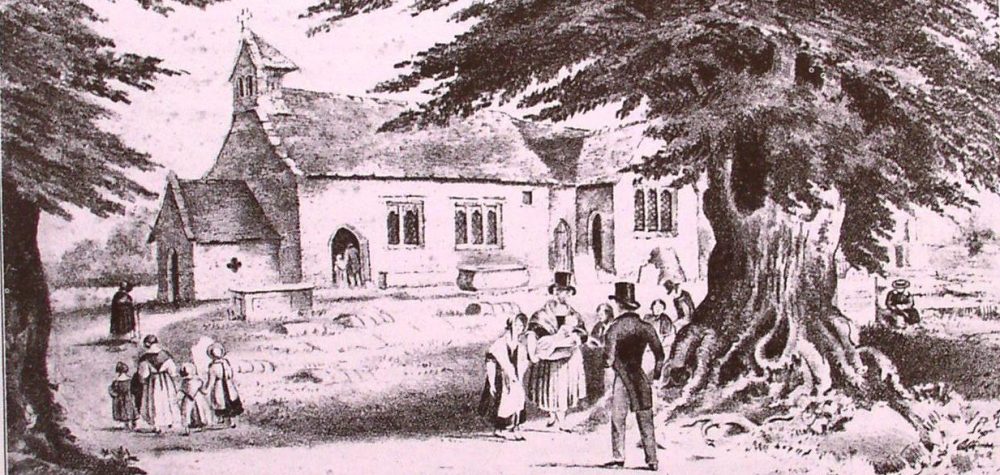24th November 1866 – A charge of stealing £14
William Jones plasterer &c., Nantyderry, appeared on remand to answer a charge of having stolen £14. The property of the trustees of the Pontypool Park Estate. Mr Alexander Edwards for the prosecutors and Mr Greenway for defendant, the first mentioned gentleman briefly stated the facts of the case which were, that a letter containing two £5 notes and 4 sovereigns was sent from the estate office on the 3rd inst., by a messenger, to the park house, which accidentally fell out of the hat unobserved by him whilst taking off the same to bow to a gentleman who was passing him in the street. Prisoner having been suspected of picking the letter up denied having done so when questioned on the matter by Sergeant Brook, and when at the police-station he said he only had £12 in his possession and the notes bearing the same numbers of those lost, and four sovereigns, were found upon him.
The fact of his denying having the letter he (Mr Alexander Edwards) contended was a proof that he intended to keep the money. In answer to the chairman, Mr A Edwards said the letter was directed to Mr Tomlinson, Pontypool Park. Mr Greenway asked for the production of the envelope. Mr Edwards said prisoner had destroyed it. The chairman wished to now if there was any evidence to shew that prisoner knew that the letter dropped out of the hat, when it appeared that no evidence of that nature had been obtained. In answer to the magistrate’s clerk, it was stated that the letter was dropped at twenty minutes to one, and the money found at about two o’clock in the afternoon. Mr Alexander Edwards observed that he was aware it must be proved that prisoner had the means to knowing to whom the letter belonged, which he had from the envelope. Mr Greenway said he had only been consulted on the case since he came into court. He did not mean to deny that prisoner had not picked the letter up, but he says that he did not know that what he was doing wrong, and was very sorry for what he had done. The fact of the matter was, that he (prisoner) had taken too much drink at the time, and on the policeman coming up and questioning him as he did he became irritated and would not give any information about the letter but when you have such a character given him as that produced by a gentleman of such standing, you cannot think for a moment that he intended to appropriate the money, and if he had become a little more sober, he no doubt would have acknowledged the possession of the letter. Mr Greenway added that he was not instructed to withhold anything. In the course of some general remarks the chairman said prisoner had been taken up for larceny, but there were motives why he might deny having the letter in his possession.
He might deny having it in the hopes of receiving some reward for finding it, and unless it could be proved that he had a felonious intention he must be discharged.
Whatever the bench might think of the act itself, they must keep within the law; there was no evidence to shew that he saw the letter fall from the hat, addressing prisoner the chairman told him that he had placed himself in a position that every honest man would be ashamed to be placed in. He had received a good character, but many a man get well spoken of simply because he has had the tact to keep his dark deeds from coming to light. After being cautioned as to his future proceedings, prisoner was discharged. The money of course was given to the owners.
